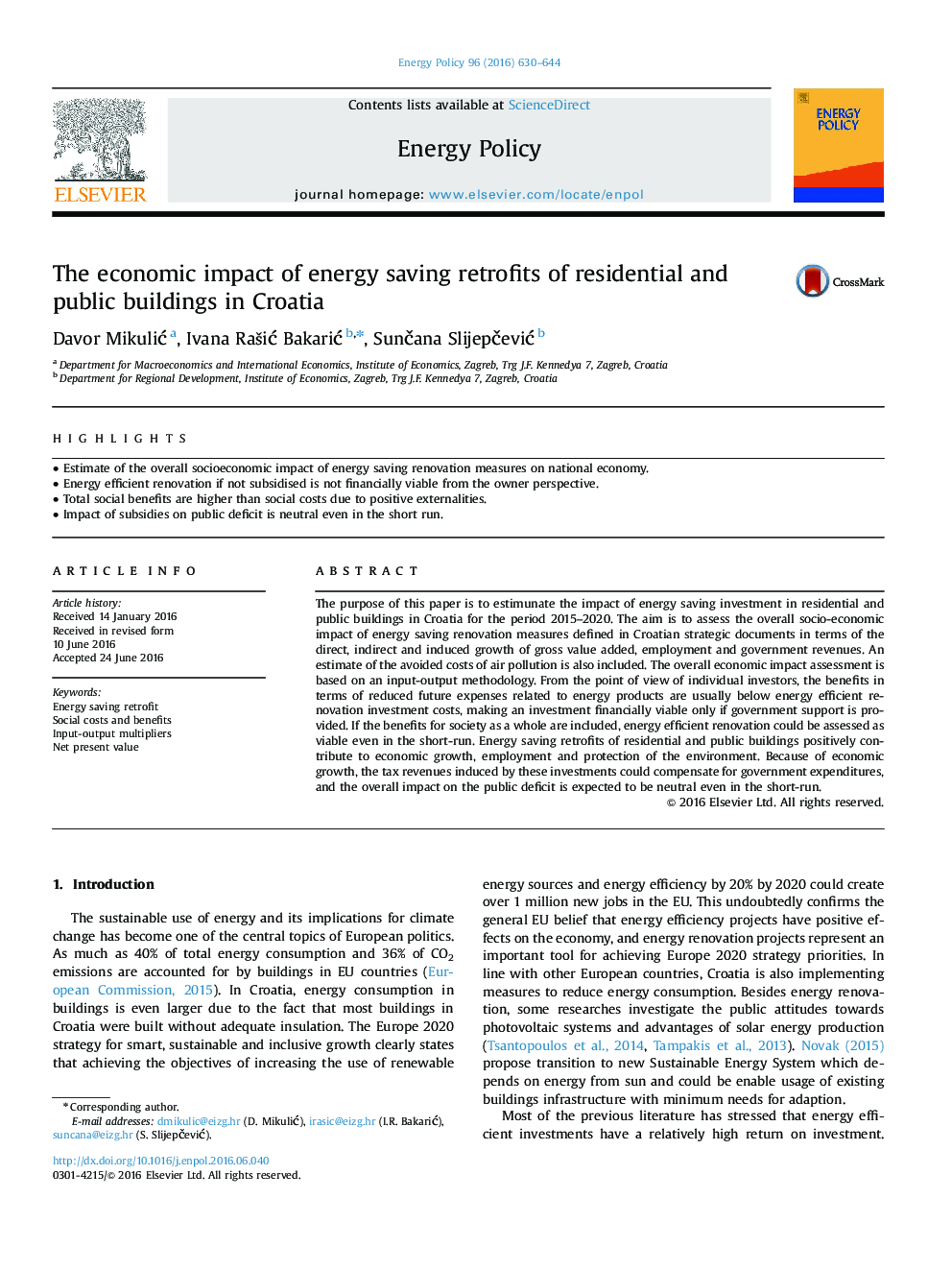| Article ID | Journal | Published Year | Pages | File Type |
|---|---|---|---|---|
| 7399016 | Energy Policy | 2016 | 15 Pages |
Abstract
The purpose of this paper is to estimunate the impact of energy saving investment in residential and public buildings in Croatia for the period 2015-2020. The aim is to assess the overall socio-economic impact of energy saving renovation measures defined in Croatian strategic documents in terms of the direct, indirect and induced growth of gross value added, employment and government revenues. An estimate of the avoided costs of air pollution is also included. The overall economic impact assessment is based on an input-output methodology. From the point of view of individual investors, the benefits in terms of reduced future expenses related to energy products are usually below energy efficient renovation investment costs, making an investment financially viable only if government support is provided. If the benefits for society as a whole are included, energy efficient renovation could be assessed as viable even in the short-run. Energy saving retrofits of residential and public buildings positively contribute to economic growth, employment and protection of the environment. Because of economic growth, the tax revenues induced by these investments could compensate for government expenditures, and the overall impact on the public deficit is expected to be neutral even in the short-run.
Keywords
Related Topics
Physical Sciences and Engineering
Energy
Energy Engineering and Power Technology
Authors
Davor MikuliÄ, Ivana RaÅ¡iÄ BakariÄ, SunÄana SlijepÄeviÄ,
